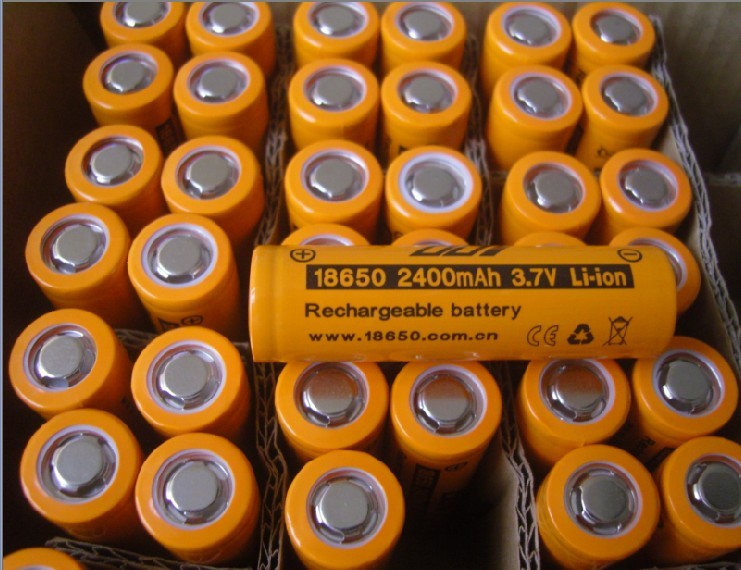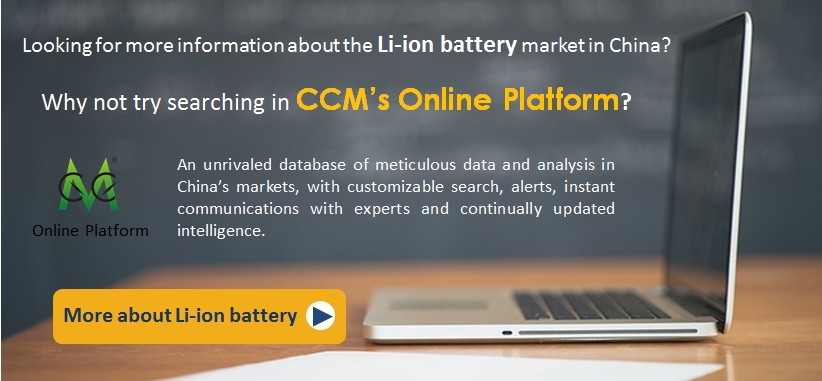CATARC
predicted that China will have 120,000-170,000 tonnes of waste power Li-ion
batteries removed from alternative energy vehicles by 2020. Then, where will
these batteries go?

China’s alternative energy vehicle
industry is booming, but it gradually exposes a problem that the lifespan of
power Li-ion battery is relatively short. Although some alternative energy
vehicle producers give a 10-year commitment on the lifespan and warranty of
their batteries, the average actual life of power Li-ion batteries is only
about 5 years, if environmental and other factors are taken into consideration.
The China Automotive Technology and
Research Centre (CATARC) predicted that China will have 120,000-170,000 tonnes
of waste power Li-ion batteries removed from alternative energy vehicles by
2020. Then, where will these batteries go?
Theoretically
speaking, these waste power Li-ion batteries still have their value, as they
can be used on energy storage, power station, road lamps, and low-velocity
electric vehicles (EV) before they are finally recycled. This is the so called
“reuse” or “cascade-use”.
In Jan. 2016, General Motors Company (GM) announced to publish its technology
development plan on the reutilisation of power Li-ion battery. Prior to this,
GM once considered about applying the waste batteries to power system, similar
to the idea of other insiders.
“The cascade-use of power battery is not only energy-saving, but also
cost-saving, if it can be applied widely,” said Yin Chengliang, vice director
of the Automobile Engineer Research Institute of Shanghai Jiaotong University.

The Chinese government thought highly of the issue and released some policies
to regulate the work of dealing with waste power batteries. For instance, the
National Development and Reform Commission, Ministry of Industry and
Information Technology (MIIT), Ministry of Environmental Protection jointly
released the Technology Policy for the Recycle of Electric Vehicle Power
Battery (2015 Edition) in Jan. 2016. Accordingly, EV producers and power
battery producers were defined as liabilities for the recycling of power
battery, and a coding system for power battery was established. Besides, power
battery dismantled from vehicles must be cascade-used first before being
recycled. The MIIT also released the Industry Regulations on the Integrated
Use of the Waste Power Battery from Alternative Energy Vehicles (Exposure
Draft) and the Interim Measures for the Industry Regulations on the
Integrated Use of the Waste Power Battery from Alternative Energy Vehicles
(Exposure Draft).
Currently the subsidiary of State Grid Corporation of China in Beijing and
Zhejiang are dedicated to research on the use of the complementary energy of
power Li-ion battery. They already invested in the research project of
cascade-use of power Li-ion battery, but the process is rather slow, according
to an analyst in the alternative energy industry.
In fact, it is not easy to reuse the waste power Li-ion battery in energy
storage on a large scale. Although storage Li-ion battery has a lower demand
for battery cell density than power Li-ion battery, the scale of a storage
project usually reach 100 KWh or even 10,000 KWh, indicating that a large
amount of alternative energy vehicle power Li-ion batteries (average capacity
of about 30 KWh each) are needed to make a battery pack. This will result in
low uniformity in battery pack and hard to be managed, so the overall effect of
storage cannot be guaranteed.
Moreover, the battery circuit, size and evaluation requirements in China vary
from vehicle enterprise to vehicle enterprise, leading to scattered types of
batteries, so it is more difficult for cascade-use.
Therefore, the cascade-use of power Li-ion battery may only be applied on a
small scale, such as in household energy storage programs.

About CCM:
CCM is the leading market intelligence provider for China’s agriculture, chemicals, food & ingredients and life science markets. Founded in 2001, CCM offers a range of data and content solutions, from price and trade data to industry newsletters and customized market research reports. Our clients include Monsanto, DuPont, Shell, Bayer, and Syngenta.
For more information about CCM, please visit www.cnchemicals.com or get in touch with us directly by emailingecontact@cnchemicals.com or calling +86-20-37616606.
Tag: li-ion battery